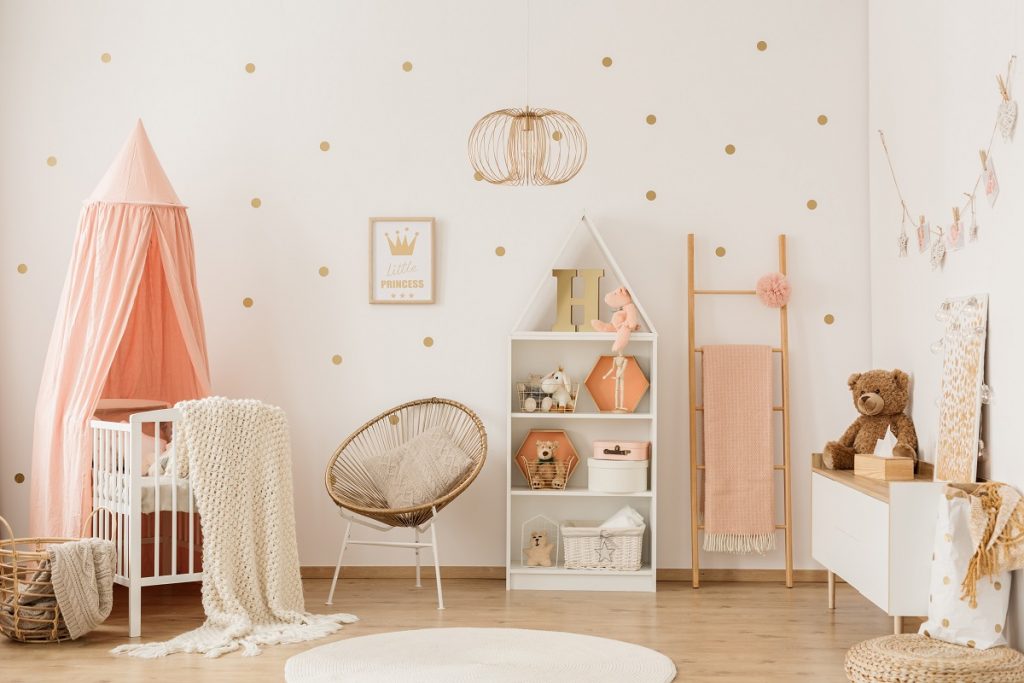The safest place our child could ever be is in the comforts of our own homes. Nonetheless, statistical data has shown that over 10.4 million children’s emergency room visits each year are due to in-home accidents. Among the leading causes are allergies, poisoning, falling, and being struck by objects or people. These unfortunate incidents not only cause injury but, in some instances, death. That is why parents must put an extra effort into baby-proofing their homes.
First-timer parents should particularly be wary of placing measures to keep their babies safe and secure from all potential hazards at home. It is quite challenging to determine what are these potential hazards lurking at home. But we should remember that babies’ mental faculties are not yet as developed as ours. For instance, they do not know yet that touching a hot stovetop could burn you or that sticking one’s finger on the outlet could get you electrocuted.
Thus, it is left for us adults to make sure they are safe and secured. To babyproof our homes, we must look at our homes from the point of view of our babies. Babies are small. They do not have a sense of balance yet. Plus, they are extremely curious. Here are some helpful tips parents should keep in mind in making their homes safe and secure for babies.
Baby Proofing Pointers for New Parents
1. Mind the Baby’s Crib
Most of us have never thought about it, but even baby cribs can be a potentially hazardous area for your baby. In 2011-2012 data by the U.S. Consumer Product Safety Commission, over 36 deaths occur each year due to cribs and crib mattresses.
To prevent this unfortunate incident from happening, parents should opt for appropriate crib-rail heights. Aside from that, unnecessary objects should be removed from your baby’s crib. Even blankets could pose a potential hazard.
2. Restrict Bathroom Access
The most prime area for in-house injuries and accidents is the bathroom. Babies love to explore places and their ending up in the bathroom alone is alarming. The cold, slippery tile floors and fixtures alone could hurt them if they bump into them. Not to mention, cleaning products and medication lying around could potentially be ingested by your child.
Thus, this calls for parents to make sure that bathroom doors are locked at all times, and toilet seats have child-proof locks.
3. Check the Water Heater Setting
Around 15 months old, babies become more and more curious about their surroundings. They would start becoming fascinated with tinkering with knobs and turning things on and off.
It sometimes happens with curious babies to be scalded with hot water while playing with the water heater. That is why parents should set the water heater temperature to less than 120 degrees. Most importantly, though, parents should never leave their children unsupervised in the bathroom.
4. Cover Electrical Outlets
The same thing should be considered with turning on things and tinkering with knobs. Babies like to stick their fingers or tiny objects inside holes, particularly inside those electrical sockets they see at home. Prevent electrocution by plugging these outlets with plastic covers. Better yet, opt for spring-loaded outlet covers instead of the typical electrical plates.
5. Mind Heavy Objects
Once babies turn six months old, they begin to move and play around more often. Given such, parents should be mindful of any potential dangers in the surrounding. Televisions, heavy vases, and bookshelves are some items that babies tend to grab and hold onto. Make sure that these items are tightly secured or are placed somewhere else in restricted areas.
6. Declutter Floor
Concerning keeping heavy objects secured or locked away, floors should also be clean and clutter-free for your babies. Keep away small objects within reach, pathways should be cleared from any wires and cords, and a no-shoes policy should be implemented.
Store any old books, magazines, and other objects in packing materials bought in bulk, and put them in a spare room or corner. It is also suggested that hardwood flooring be preferred as it is much easier to clean than carpet ones.
7. Install Stair Barricade
For two-story houses or even those bungalow types with an elevated area, stair barricades are necessary. There is no need to install one when the baby is still a newborn. However, once the child starts moving around, parents should also put these protective measures.
When thinking of keeping your baby safe, there is no such thing as over-preparation. Remember, it is always better to be safe than sorry. Hopefully, with these tips, you can ensure the safety and security of your baby in the comforts of your own home.

